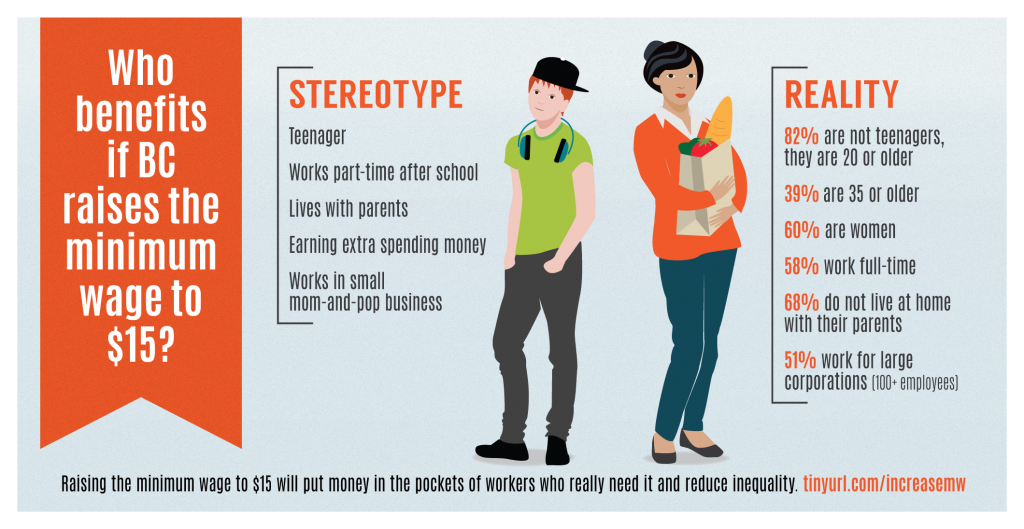
With growing questions in today’s society on inflation, living expenses, and the poverty line, a social dilemma around the minimum wage is never too far. Just last month, the province of British Columbia had announced the increase of its minimum wage from $10.45 to $10.85. Though a small incremental increase, BC had just moved from being the province with the lowest minimum wage into middle ground. Other Canadian provinces such as Alberta have even moved forward to promise a $15 minimum wage by 2018.
However, whenever considering the issues over minimum wage, controversy develops over the right plan of action towards a solution, and simply increasing the minimum wage isn’t a perfect resolve. With the US election occurring this fall, many Republicans and Democrats have put forth their bold opinions on the minimum wage issue. Donald Trump, once claiming that wages (including the $7.25 an hour federal minimum wage) were too high, eventually supported an increase to $10 an hour, while Hilary Clinton supported Bernie Sander’s promise to raise to $15 an hour.
Steven Zhao’s recent blog post, evaluating the pros and cons of an increase in minimum wage, presents varying views on the effects of such increases. Some economists, he explains, speculate that the results would cut jobs and increase unemployment, and also hurt small businesses, as labour would cost more, limiting the number of people a business can employ, and also cut profits. Others argue that there is great potential for economic growth with more money circulating the economy, and that spending will increase and will actually help grow small business.
Putting those economic theories to practise, effects can be seen in the example of Seattle’s increase in its minimum wage to $15 an hour approximately two years ago. As a result, there was actually a decrease in unemployment, as profits in local businesses in fact did grow and more workers were employed as a result. Perhaps there may be more confidence in the positive effects of an increased minimum wage, in opposition to those against it.
However, a clear answer still remains hidden amongst the hay stack. As Steven argues, different areas in Canada hold vastly different expenses, and hence a differing demand for wage increases. Urban centres such as Toronto and Vancouver have a much greater living expense compared to smaller municipalities in PEI for instance. Minimum wage is subsequently a much debated topic, with effects that are hard to predict and results that are fairly difficult to quantify. However, with increasing economic problems in society, there must be more thought put into the picture in order to provide a solution that works for everyone.
Word Count: 441
References:
https://blogs.ubc.ca/zhaosteven/
http://www.cbc.ca/news/canada/british-columbia/mimimum-wage-1.3763226
http://www.cnn.com/2016/07/27/politics/donald-trump-minimum-wage/
http://www.ncsl.org/research/labor-and-employment/state-minimum-wage-chart.aspx